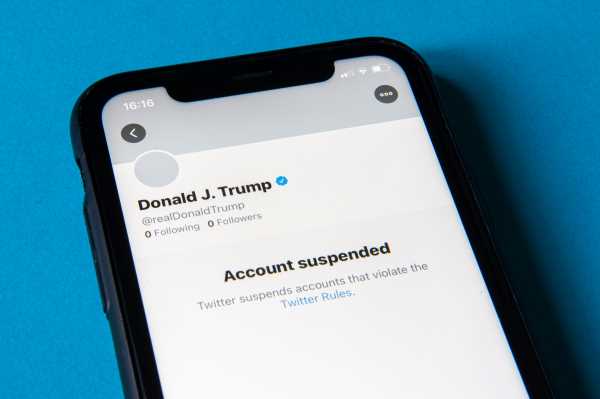Twitter and Facebook Block President Trump: How Should Evangelicals Respond to the Threat of Censorship?
By Jim Denison
Controversy erupted recently when Facebook and Twitter blocked President Trump from their platforms following the January 6 Capitol riots, claiming that his posts violated their rules against inciting violence. Last week, the conservative social media platform Parler was de-platformed by Amazon Web Services, citing “posts that clearly encourage and incite violence.” Apple and Google joined in blocking the platform.
What do these actions mean for the future of American media? How could they affect evangelical Christians in the coming years? How should we respond biblically to this divisive and urgent issue?
Publishers or platforms?
Let’s begin with some background. At the heart of the debate is the question: Are social media companies such as Twitter and Facebook publishers or platforms?
If they are publishers, they are liable for the content they publish. For example, if the New York Times publishes a story that defames a person, it can be sued for libel.
If they are platforms, by contrast, they are not liable for the content published by others on their sites. If someone posts a bad review of a restaurant on Facebook, the restaurant cannot sue Facebook. If it could, social media platforms would be inundated with lawsuits and could cease to function.
However, these platforms can regulate content if necessary without incurring legal liability. Section 230 of the Communications Decency Act of 1996 states: “No provider or user of an interactive computer service shall be held liable on account of any action voluntarily taken in good faith to restrict access to or availability of material that the provider or user considers being obscene, lewd, lascivious, filthy, excessively violent, harassing, or otherwise objectionable, whether or not such material is constitutionally protected.” This provision allows social media platforms to restrict child pornography, for instance.
Republicans and Democrats have both criticized the way social media platforms have utilized this protection. The former claim that conservative speech is being censored; the latter claim that hate speech and disinformation are being protected and promoted
The dangerous scope of the issue
Here’s the question for us: Will evangelicals be the victims of censorship by social media companies in the future? If they consider our stance on same-sex marriage to be “harassing” or “objectionable,” for example, will they block our content?
The issue is larger than social media platforms. Email distributors can decide to block content they find objectionable, which would make it difficult for me to send The Daily Article to our 300,000 subscribers. Conservative voices can be marginalized or blocked by the liberal bias of mainstream media.
This debate goes to the heart of our democratic experiment. Conservative commentator Jonah Goldberg is right: “Democracy is supposed to be about disagreements, not agreements. Forced unity, outside of a war or some other national emergency, is antithetical to democracy and poisonous to civility. It’s become a cliché to say we live in two Americas. If that’s true, the people running the media of each nation should do more than just live off demonization of the other nation.”
How should evangelicals respond?
In days like these, Christians must speak biblical truth with courage, passion, and grace. The more our culture rejects biblical truth, the more it needs to hear biblical truth. The harder it becomes to speak the truth in love, the more we must do both (Ephesians 4:15).
But we cannot give what we do not have. To share the truth of God, we must stay connected to the God of truth.
Jesus declared: “If you abide in my word, you are truly my disciples, and you will know the truth, and the truth will set you free” (John 8:31–32). Note the order: “abide” (remain) in his word as his “disciples” (fully devoted followers), and we will “know” (experience personally) the truth and be set free by it. Then we will share it with those we influence so they can experience the same freedom in Christ (Matthew 4:19; 1 Peter 3:15).
To this end, I invite you to make this prayer by Scottish minister John Baillie yours: “By your grace, O God, I will go nowhere today where you cannot come, nor seek anyone’s presence that would rob me of yours. By your grace, I will let no thought enter my heart that might hinder my closeness with you, nor let any word come from my mouth that is not meant for your ear. So shall my courage be firm and my heart be at peace.”
Will your “heart be at peace” today?
_______________________________________________________________________________
Jim Denison Ph.D speaks and writes on cultural and contemporary issues. His daily column is distributed to more than 113,000 subscribers in 208 countries. See more on the website
www.denisonforum.org. Copyrighted and printed by permission from Denison Forum.
You can read more good Christian news from the Denison Forum here.
_______________________________________________________________________________









